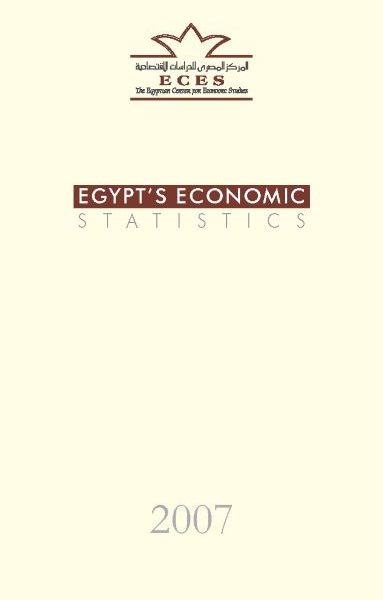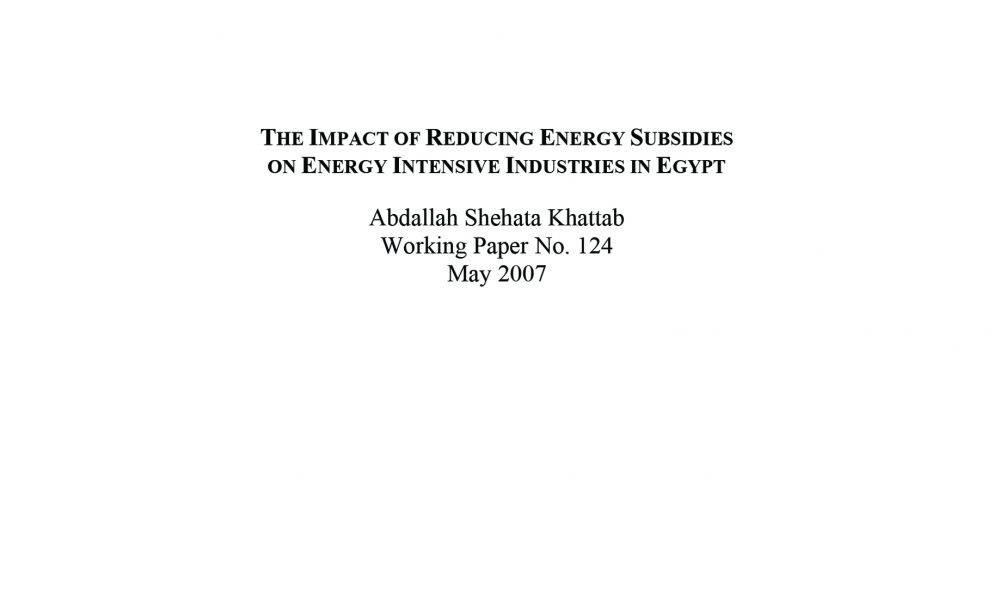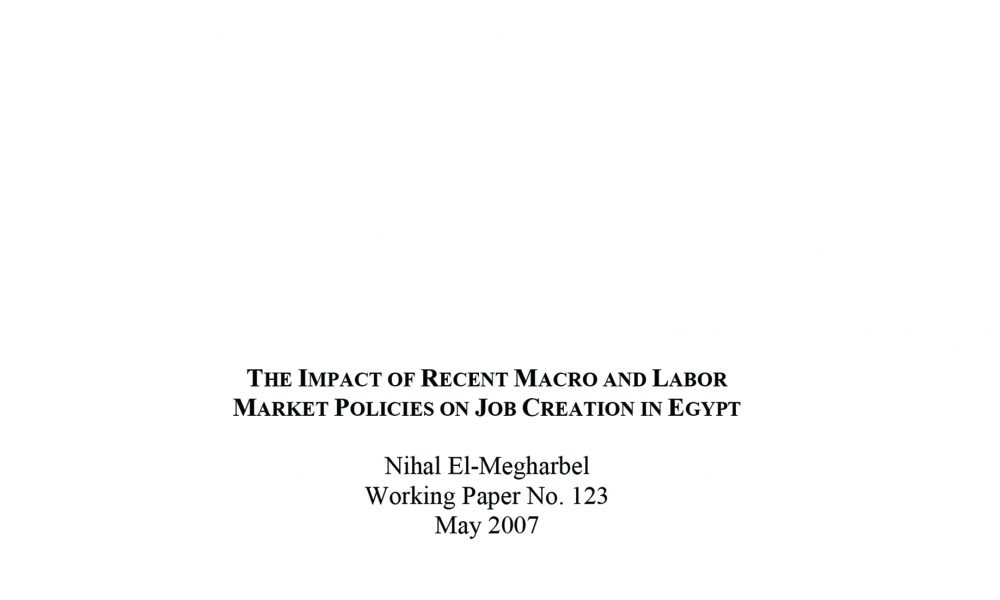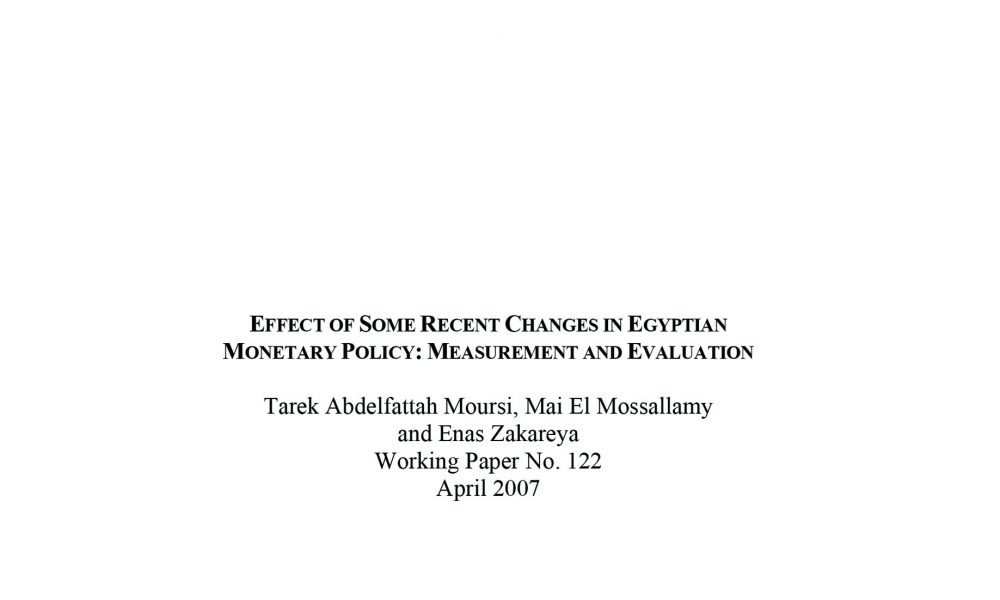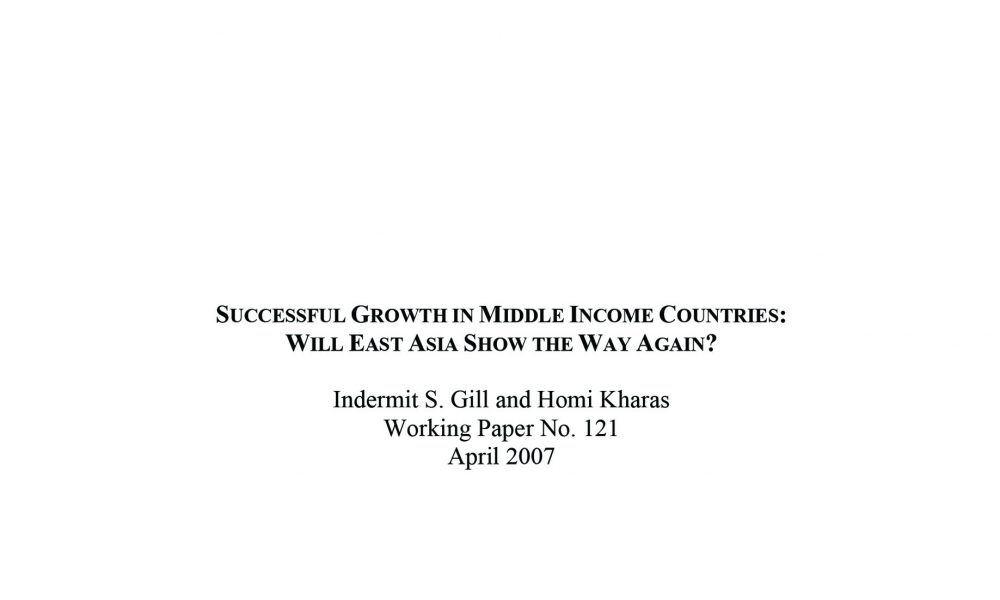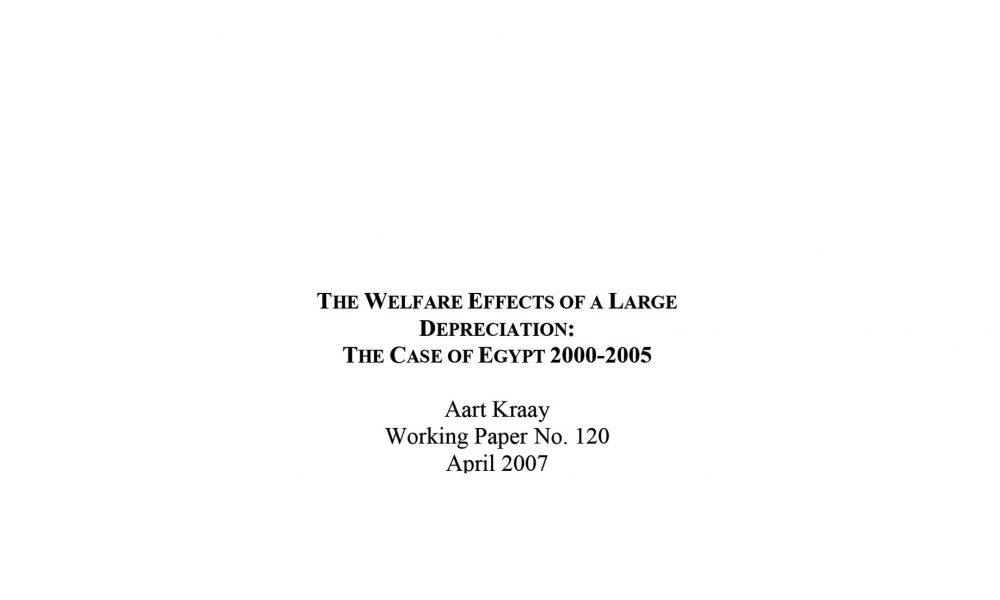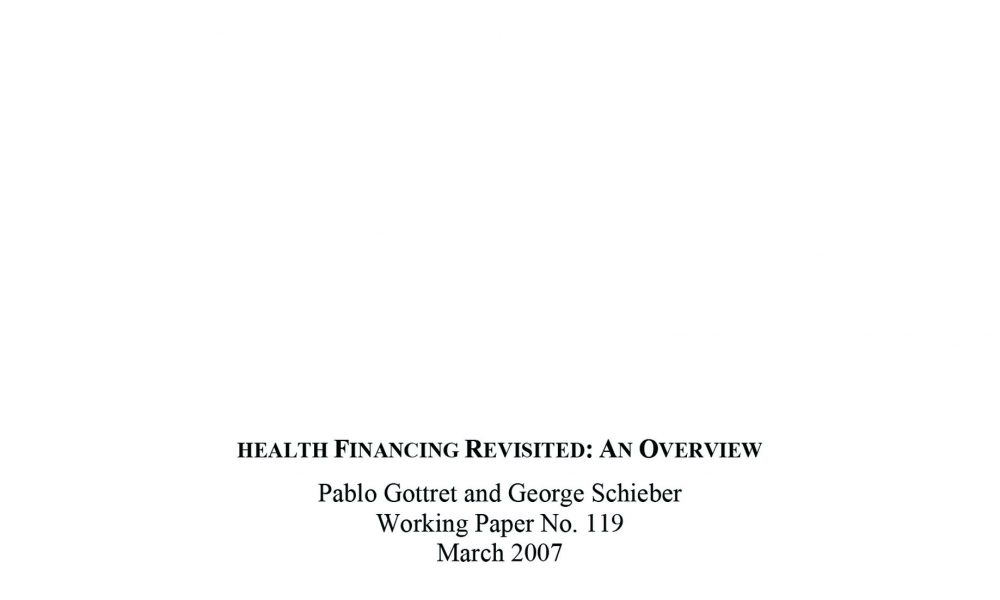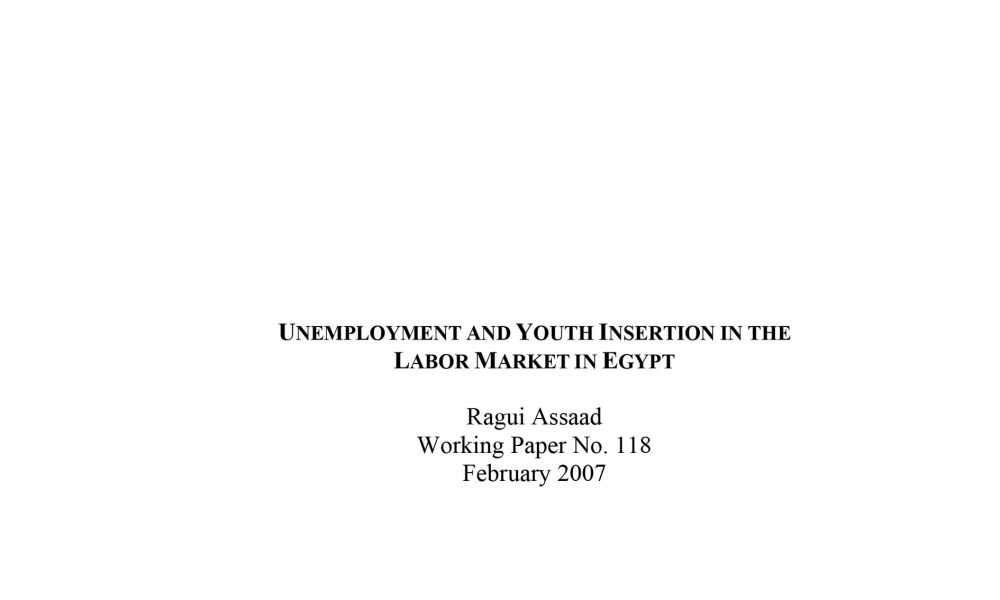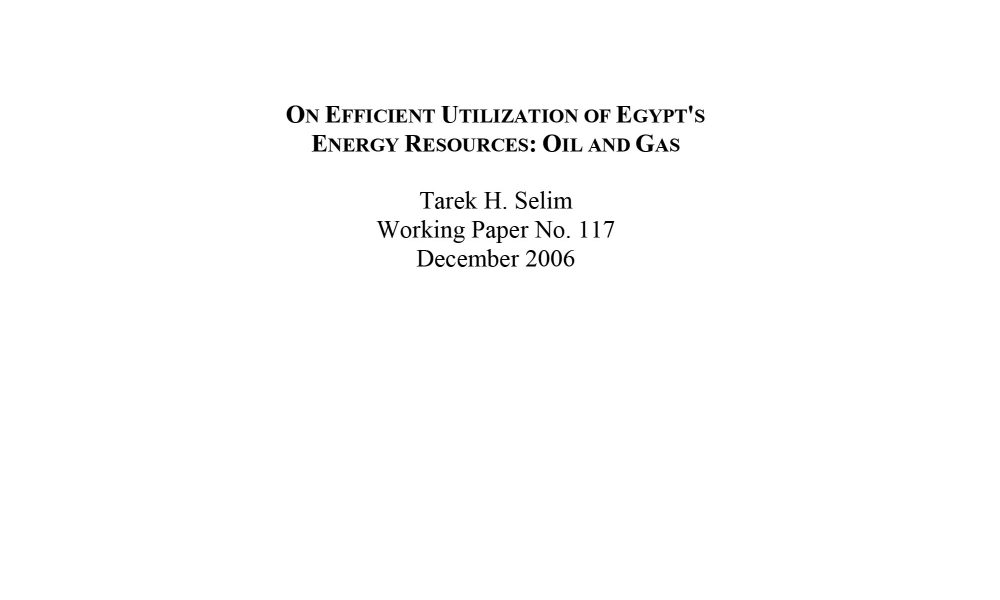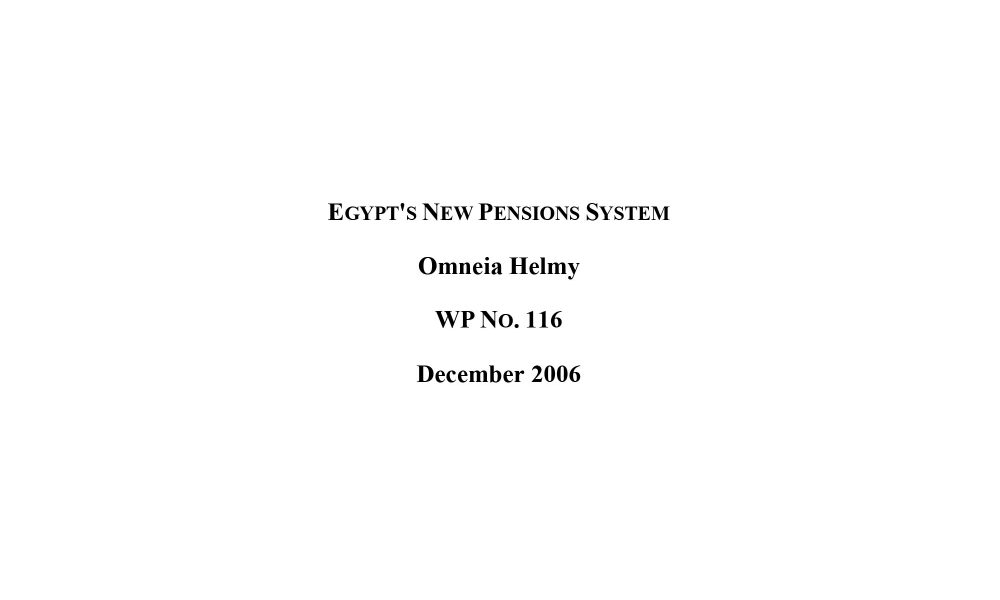Intended mainly for investors and the business community, this annual publication provides summary data and information on the various aspects of the Egyptian economy.
Abstract: This paper investigates the impact of reducing energy subsidies in Egypt on energy intensive[1]industries applying a partial equilibrium approach. It first selects a sample of sectors and industries that depend heavily on energy products, and then measures the impact on profitability per ton of production in these industries, holding other factors constant. The paper […]
Abstract: This paper analyzes the impact of recent macroeconomic and labor market policies in Egypt on job creation. It shows that reform measures undertaken by the government in the last two years (2005-06) to promote investment, boost exports and improve public finances, have not increased employment adequately. Labor market policies did not correct for labor […]
Abstract: The paper focuses on examining the salient features and developments in the structure of monetary policy and on describing their implications for the Egyptian economy mainly during the period 1990 through 2005. The analysis is based on a set of policy oriented models that measure the stance of monetary policy and evaluate the responses […]
Abstract: Emerging East Asia has achieved remarkable growth rates since 1998, and successfully integrated both regionally and globally. This paper attempts to contribute to the debate on what this region—and other middle income countries— need to do to join the ranks of developed nations. Besides the importance of exploiting economies of scale, the paper points […]
Abstract: The Egyptian pound depreciated sharply between 2000 and 2005, declining by 26 percent in nominal trade-weighted terms. This paper investigates the effect of the large depreciation on household welfare operating through exchange rate-induced changes in consumer prices. To do so, the study estimates exchange rate pass-through regressions using disaggregated monthly consumer price indices to […]
Abstract: Health is now widely recognized as a basic human right, and the urgency of some global issues has pushed global health policy to the top of the international agenda. This paper provides an overview of health financing policy in developing countries in order to assist policy makers and other stakeholders in the design, implementation, […]
Abstract:Using data from the recently released Egypt Labor Market Panel Survey (ELMPS) of 2006, the study shows that there has been a decline in both the relative and absolute size of unemployment in Egypt in the period from 1998 to 2006. This study presents detailed evidence in support of this assertion, including the process of […]
Abstract:The Egyptian government has recently outlined its vision for a new pension system and highlighted its proposed features. The purpose of this paper is to analyze the proposed system and give an ex ante assessment of its expected results in light of international experience. The paper finds out that the gradual implementation of the system […]

